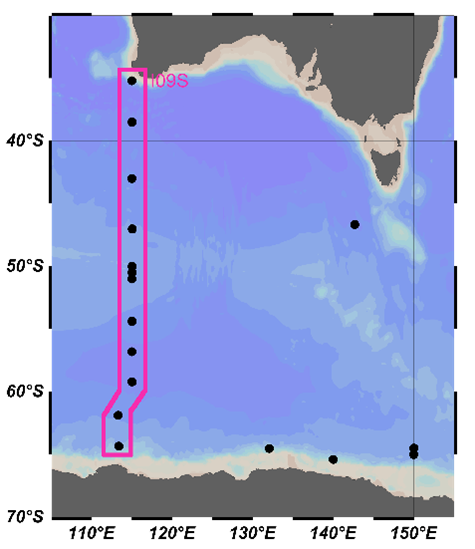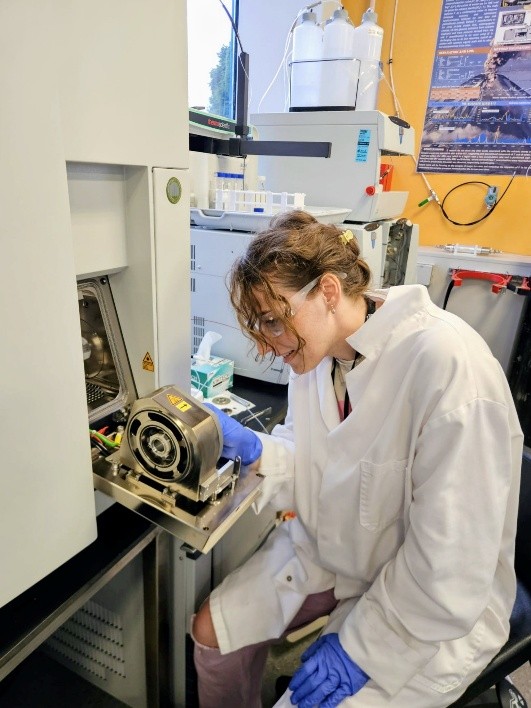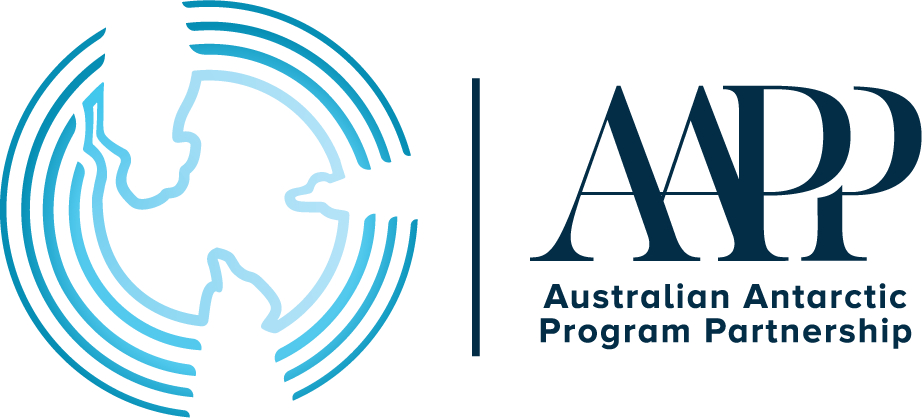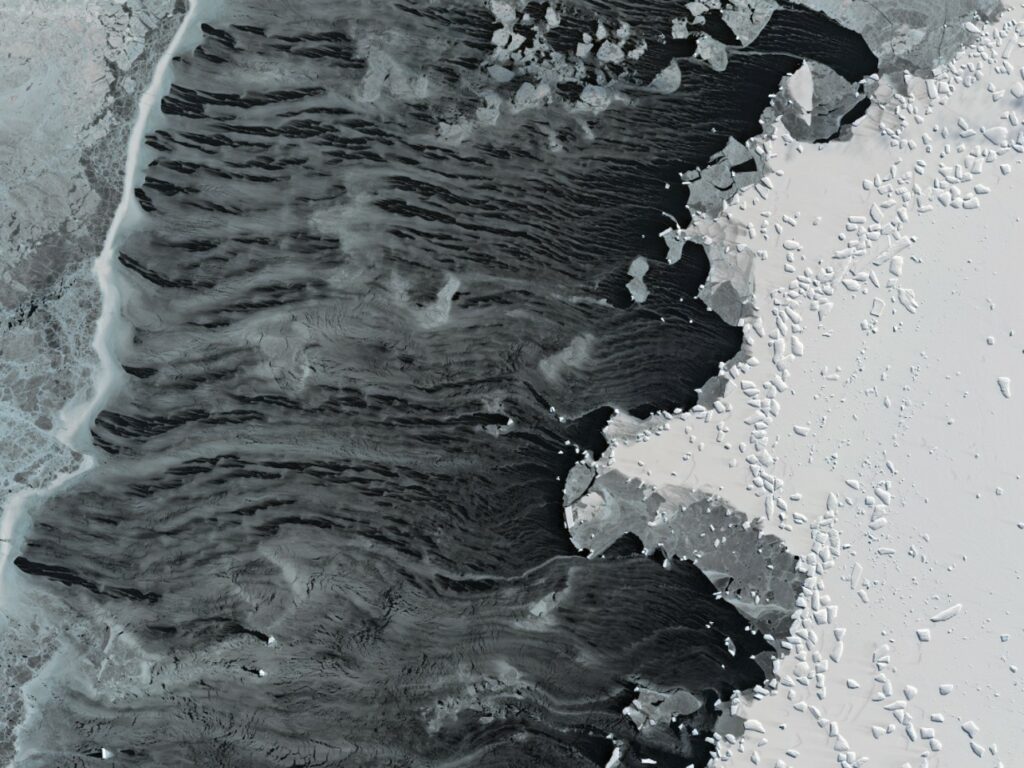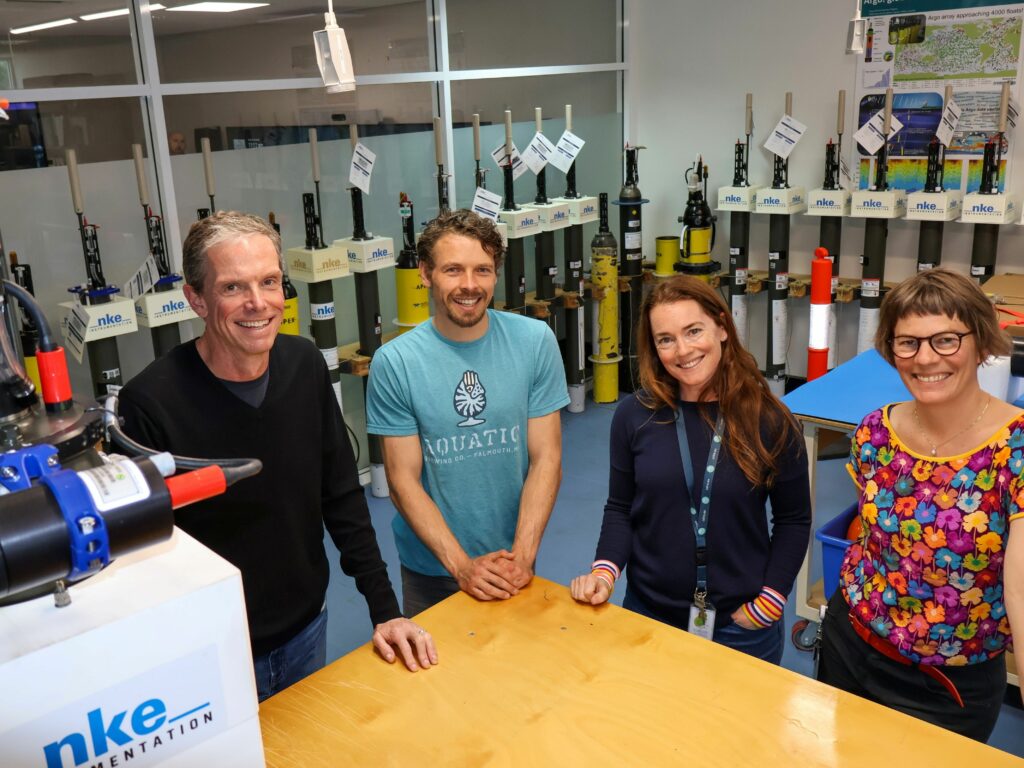Uncovering cadmium in the Southern Ocean
21 May 2025
Congratulations to AAPP PhD student Edelgard ‘Edel’ Baumann, who passed her confirmation of candidature in late April.
Edel’s research in marine sciences has taken her from Germany around the world – to Portugal, Brazil, and India – and now she’s taken the plunge to study the Southern Ocean from Tasmania.
Her project is a part of the international GEOTRACES program – a global effort to understand biogeochemical cycles and the large-scale distribution of trace elements in the ocean. Her results will join a database of marine data from 2010 to the present day, which other scientists will be able to include in their own research.
Edel is using samples collected during the 2024 MISO voyage to analyse changes in cadmium (Cd) along transect I09S (from Antarctica to Western Australia, see diagram below) which will inform how different elements interact with ocean circulation and productivity.
She will compare her laboratory analyses with a modelling approach – combining an applied optimum multiparameter analysis with a multi-box model – to identify whether the processes controlling Cd behaviour are physical or biological in nature.
Cadmium (Cd) is an ultra-trace metal found in the ocean at extremely low concentrations. Cd in seawater originates from natural weathering of rocks and minerals, as well as from hydrothermal vents and volcanic activity, and in coastal waters from industrial pollution. Cd can act either as a nutrient or a toxin, influencing both phytoplankton growth and community composition.
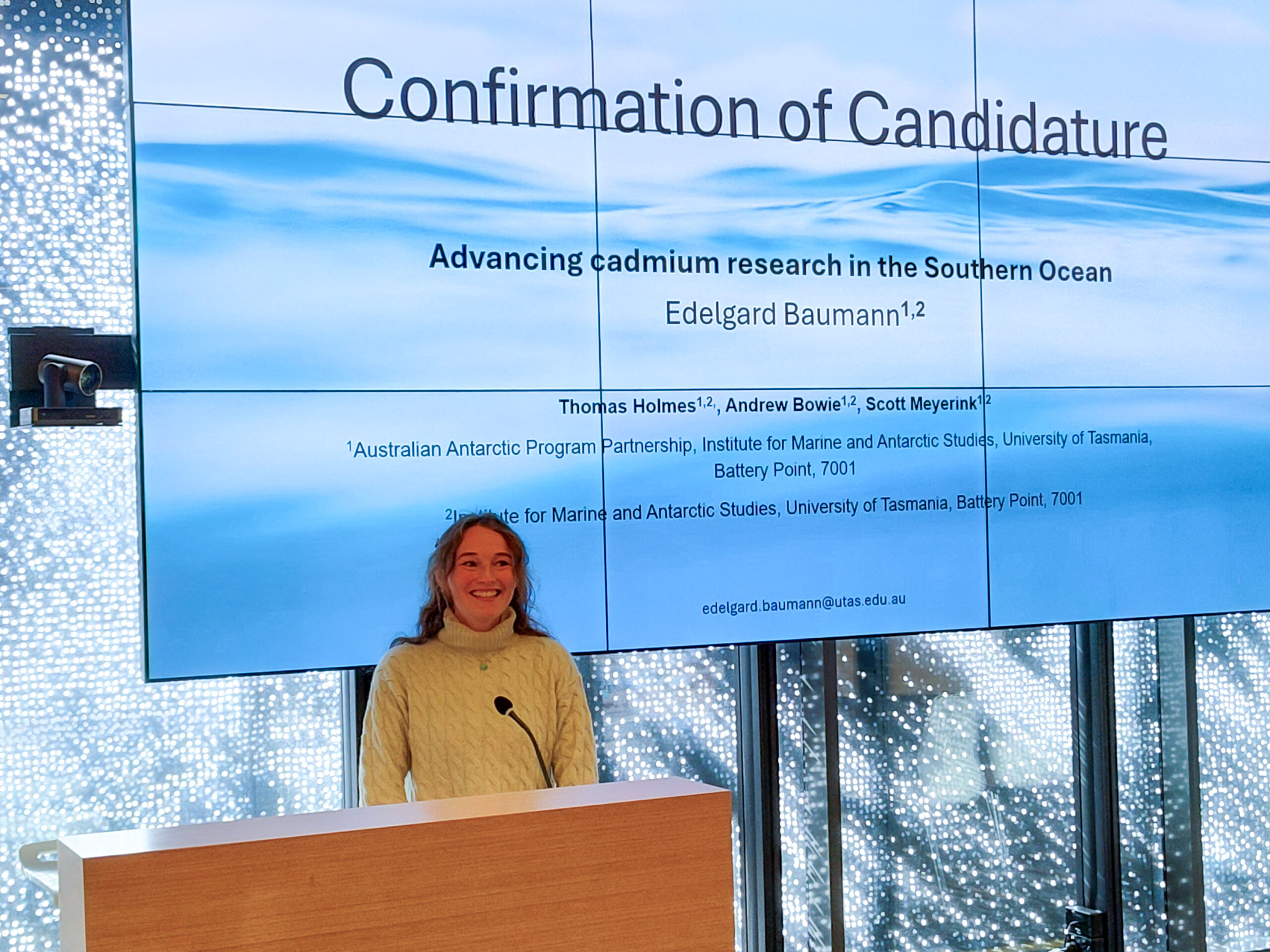
Up to now, Cd in the ocean has been understudied, despite its ratio with phosphate being crucial in reconstructing past nutrient distribution and circulation. This has made the first year of Edel’s PhD challenging as there are few studies focusing on Cd in the Southern Ocean to compare her data with.
Within the international marine sciences community there is also uncertainty about how Cd interacts with other trace metals, which could impact our understanding of how trace metals influence biological activity. But this hasn’t deterred Edel, who’s excited to fill these knowledge gaps.
Edel was awarded the Best Trainee prize at the 2024 CLIVAR-FIO summer school for making meaningful contributions during the workshops and talks, and identifying connections between different fields.
AAPP Marine Carbon Analytical Chemist, Gemma Woodward, talked to Edel about her work so far:
Why is your research important?
Oceanography is a long-standing scientific field but improvements in our understanding of the oceans have been difficult because of technical limitations. We’re now at a stage where technology has improved to a point where we can gather new data that set previous observations in context. This is especially true for trace metals – they are a crucial part of the marine environment that has been under-explored and my research is contributing to increasing our knowledge of oceanic processes they are involved in.
What has been your greatest challenge this year?
When I heard about the project I liked the idea of developing my own project and having the freedom to do what I wanted, but this has been my biggest challenge! I was given the I09S dataset and told that I could go in any direction I wanted, and while I am very lucky to have been given this opportunity, it was difficult to find novel ideas to research that are possible within the limitations of a PhD.
What has been a key finding of your work so far?
There were a few unexplained oceanographic features, such as a concentration minimum between the subantarctic and subtropical fronts. These were previously found at the SR3 transect (Tasmania to Antarctica) but hadn’t been further investigated because there was uncertainty over whether they were an artefact of the data processing or not. I have also found these features in my samples. The processes that could be causing these features now need to be studied further to explain their presence.
What is your favourite aspect of your research?
I feel like a detective who gets to dig through the research and life-work of other scientists to find connections, new insights and perspectives and that’s what I have fun with in my work. It’s also a pleasure being surrounded by passionate people who are inspired by their research.
Edel is based at the Institute for Marine and Antarctic Studies at the University of Tasmania and is working under the supervision of Thomas Holmes, Andrew Bowie, and Scott Meyerink.
The Multidisciplinary Investigations of the Southern Ocean (MISO) voyage was supported by a grant of sea time on RV Investigator from the CSIRO Marine National Facility which is supported by the Australian Government’s National Collaborative Research Infrastructure Strategy (NCRIS).
